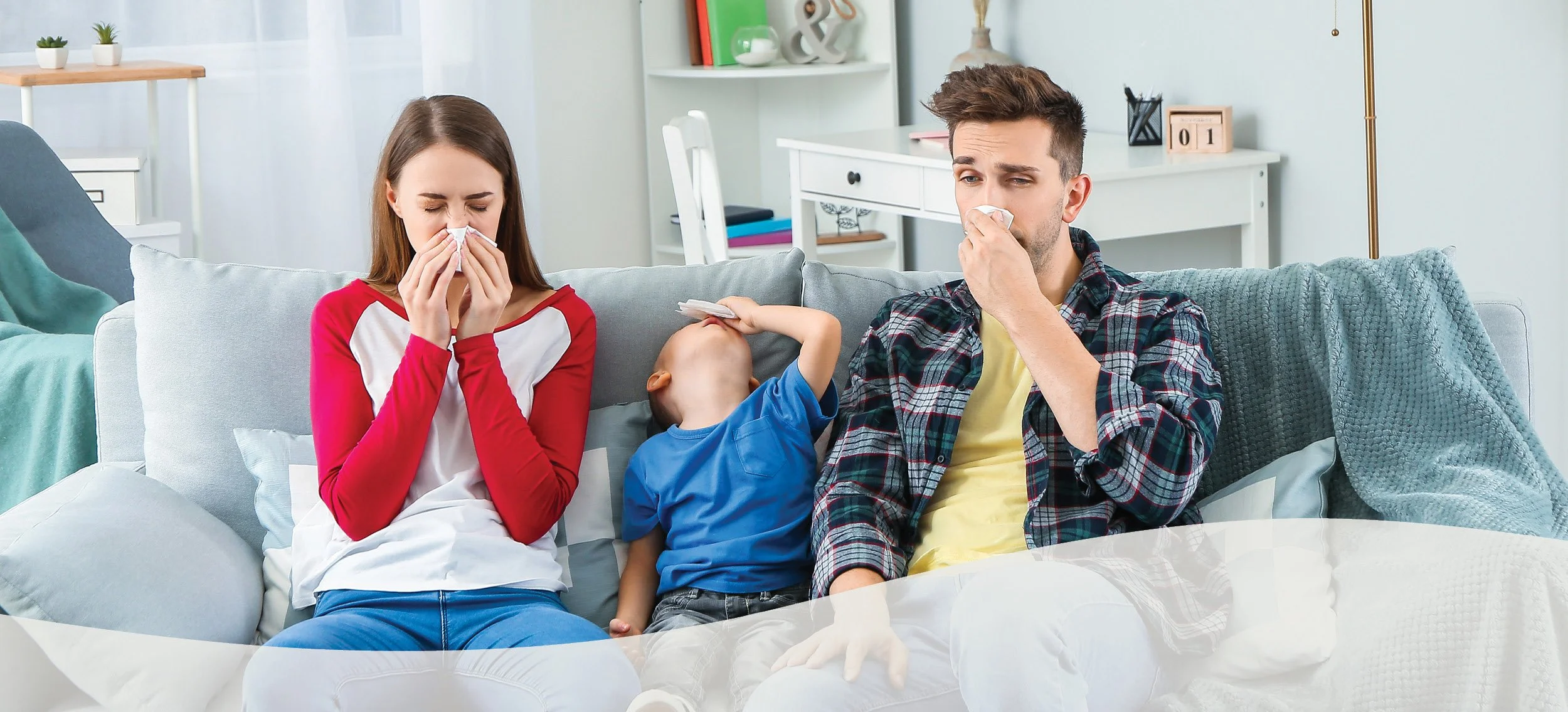Alleviating Seasonal Sneezes and Wheezes with ATL Filtration™
As the seasons change, so do the challenges faced by building managers. While indoor temperature and humidity and general maintenance are top priorities, another significant aspect of supporting occupant well-being is addressing seasonal allergies. Millions suffer from allergies, and indoor environments can either exacerbate symptoms or provide relief. Ignoring the potential effects seasonal allergies can have within your building can lead to decreased productivity, discomfort among occupants, and even potential health concerns.
Why Should Building Managers and Owners Care About Seasonal Allergies?
Indoor air can be more allergenic than outdoor air and the sheer prevalence of allergies makes this a significant issue for any building. Up to 25% of the North American population experiences seasonal allergies. This means a substantial number of building tenants, employees, and visitors could be experiencing symptoms like itchy eyes, runny noses, congestion, fatigue and other respiratory health concerns. These symptoms can significantly impact focus, productivity, and overall well-being. Building owners can help create a healthier, more comfortable, and more productive indoor environment by proactively addressing indoor air quality (IAQ) issues.
The Challenges Seasonal Allergies Pose Within Buildings
Outdoor allergens like tree, grass, weed, and other pollen are the primary triggers for seasonal allergies but indoor environments can also be major contributors. Allergens can easily enter indoor spaces through open windows, doors, and HVAC systems, then become trapped and circulate throughout the building continuously exposing occupants. Additionally, indoor allergens such as dust mites, pet dander, and mold spores can further compound the problem, leading to year-round or worsening allergy symptoms. Larger and more complex commercial and public buildings can often face greater challenges in maintaining consistent indoor air quality due to their designs and varying occupancy levels.
How Air Filtration Can Alleviate Allergies
Enhancing building cleaning practices, ensuring the building’s ventilation system is in proper working order, and controlling indoor humidity can all help with allergy control, but if the air in the facility is not being effectively cleaned, all other efforts are wasted.
Building owners and managers can implement the following air filtration strategies to help mitigate the impact of seasonal allergies indoors:
Review Air Filtration Systems: Using higher-efficiency air filters with a Minimum Efficiency Reporting Value (MERV) rating of 11-13 is recommended for capturing common allergens like pollen, pet dander, and mold spores without impeding airflow. In especially sensitive environments using High-Efficiency Particulate Air (HEPA) filters is crucial. HEPA filters are highly effective at removing 99.97% of particles as small as 0.3 microns in size. Filters should be the correct size for the HVAC system to prevent air bypass.
Complete Regular Maintenance: A well-maintained air filtration system both operates efficiently and contributes to better indoor air quality (IAQ). Regularly changing or cleaning air filters is essential. Dirty filters lose efficiency and can even become sources of contamination themselves. To maintain optimal performance, it’s important to follow a consistent filter replacement schedule based on recommendations and usage.
How ATL Filtration™ Can Help
ATL Filtration™ by Abatement Technologies® specializes in providing comprehensive air filtration solutions with a focus on improving IAQ for everyone. Our team of National Air Filter Association (NAFA) Certified Air Filter Specialists identifies the unique IAQ needs of each environment through our Aire-Assist consultation and assessment services. We carefully review your building’s system and air quality goals so we can recommend and help implement the most effective solutions to improve your building’s IAQ and allergy control.
Our Aire Guardians are passionate about clean air and dedicated to delivering exceptional customer service and support. We value strong customer relationships, offering ongoing assistance to help maintain optimal IAQ. In partnering with ATL Filtration™ building owners and managers are taking proactive steps to improve IAQ and create healthier, safer, and more productive environments.
Conclusion
Addressing seasonal allergies in buildings is a crucial aspect of responsible facility management. It impacts the health, productivity, and overall satisfaction of all building occupants. Facilities can create healthier indoor environments by understanding the challenges posed by airborne allergens and implementing proactive air filtration strategies with the help of the Aire Guardians at ATL Filtration.
Schedule your free Aire-Assist consultation today and let ATL Filtration™ help you breathe easier this allergy season.

